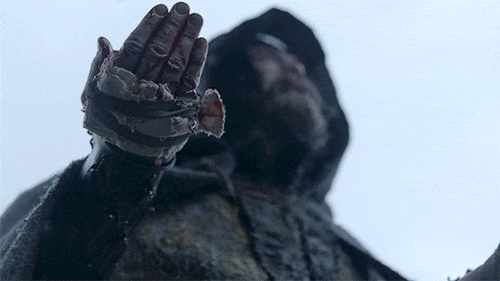Tuesday, September 6
You must be holy.
In the book of Leviticus, holiness is referred to more often than in any other book of the Bible. Since this quality is a requirement for all genuine worshippers of Jehovah, understanding and appreciating Leviticus will help us to prove ourselves holy. The book of Leviticus, written by the prophet Moses, is part of “all Scripture” that is beneficial for teaching. Jehovah’s name appears an average of ten times in each chapter of the book. Getting the sense of Leviticus will strengthen us to avoid doing anything that would bring reproach on the divine name. The book’s frequent use of the words “I am Jehovah” should remind us to obey God. As recorded in Leviticus chapter 8, Jehovah selected Aaron to serve as Israel’s high priest, and his sons were to serve as priests in behalf of the nation. Thus, Aaron represents Jesus Christ and Aaron’s sons represent Jesus’ anointed followers.
COMMENTARY
Being holy or clean before God is not an option. It is mandatory. However, what if God’s servants fall short of the standard, not just as individuals but as a congregation? Then what?
Since the ultimate accomplishment of Jehovah’s universal purpose is tied to the creation of a kingdom of holy priests who are to serve with Christ for the rehabilitation of mankind, failure is not an option. That being true —that God’s purpose cannot fail —even if imperfect men and women are involved, the failure of anointed Christians to attain or maintain holiness requires strong measures to be taken. And indeed, the prophecies foretell that very thing.
Ostensibly speaking to the sons of Levi, or the levitical priests, the prophecy of Malachi foretells: “Look! I am sending my messenger, and he will clear up a way before me. And suddenly the true Lord, whom you are seeking, will come to his temple; and the messenger of the covenant will come, in whom you take delight. Look! He will certainly come,” says Jehovah of armies. “But who will endure the day of his coming, and who will be able to stand when he appears? For he will be like the fire of a refiner and like the lye of laundrymen. And he will sit as a refiner and cleanser of silver and will cleanse the sons of Levi; and he will clarify them like gold and like silver, and they will certainly become to Jehovah people presenting a gift offering in righteousness.”
On his first visit to Jerusalem as the Messiah and upon his last sojourn there as well, Jesus went to the temple and threw the money changers out of his Father’s house. However, Jesus was not the messenger of the old covenant —Moses was. Nor did Jesus refine the Jewish priests. On the contrary, he foretold that the temple was going to be completely destroyed. Christ is the mediator of a new covenant; a covenant intended to produce 144,000 holy ones who are to serve as kings and priests for 1,000 years.
That being true, the coming of the messenger of the covenant to his temple pertains to the coming of Christ and the judgment of the house of God. That is made clear in the very next verses of Malachi, which state: “I will come near to you for judgment, and I will be a swift witness against the sorcerers, against the adulterers, against those who take false oaths, against those who defraud the hired worker, the widow, and the fatherless child, and against those who refuse to help the foreigner. These have not feared me,” says Jehovah of armies.
The question for Jehovah’s Witnesses to consider is this: Has the messenger of the covenant come, or is his coming a future event? The Watchtower says his coming has already occurred. The March 15, 2010 issue of the Watchtower stated:
In modern times, this prophecy evidently started to be fulfilled in 1918 when Jehovah, along with “the messenger of the covenant,” Jesus Christ, inspected the spiritual temple. Malachi tells us what happens once this cleansing is completed: “You people will again certainly see the distinction between a righteous one and a wicked one, between one serving God and one who has not served him.” (Mal. 3:18) The surge in activity on the part of the reinvigorated true Christians points to that period as the beginning of the harvesttime.
“Evidently”? Either the judgment took place then or it didn’t. There can be no ambiguity. Surely something as profound as the coming of Christ could not be so easily passed off as uneventful.
The Watchtower measures itself and judges itself to be righteous due to their sponsoring a global preaching work. But according to Malachi the messenger of the covenant judges the sons of Levi for their putting up with sorcerers and adulterers, for making false oaths, and for their refusal to support the widows, foreigners and fatherless boys and defrauding the hired worker.
In his letters to the seven congregations Jesus condemns two congregations for their putting up with the spiritual adulteries and idolatries promoted by Jezebel and Balaam, the so-called diviner or sorcerer. And it can be fairly easily established that Christ has not thrown “Jezebel” into great tribulation yet, which is to occur when the Lord comes to set matters straight. That means that an evil influence resides in Christ’s congregations up until the judgment of the great day.
Can it be determined if Christ came as the messenger of the covenant in 1918? Yes. Considering that the purpose of his coming is to refine his people as silver and gold, the prophecy of Zechariah uses the same symbolism of refining, saying: “And I will bring the third part through the fire; and I will refine them as silver is refined, and test them as gold is tested. They will call on my name, and I will answer them. I will say, ‘They are my people,’ And they will say, ‘Jehovah is our God.’”
According to the context of Zechariah their coming through the fire is an immediate preliminary to the final confrontation.
Interestingly, the same 13th chapter of Zechariah foretells that the prophets will be humiliated, saying: “In that day each of the prophets will be ashamed of his vision when he prophesies; and they will not wear an official garment of hair in order to deceive. And he will say, ‘I am no prophet. I am a man cultivating the soil, because a man bought me when I was young.’ And if someone asks him, ‘What are these wounds between your shoulders?’ he will answer, ‘Wounds I received in the house of my friends.’”
The Watchtower claims to be the mouthpiece of a modern-day prophet. Supposedly all anointed persons comprise a Jeremiah class, an Ezekiel class; even a Micah class. But the Watchtower has promoted one of the biggest hoaxes that has ever been perpetrated on a trusting people —deceiving millions into believing that Christ began ruling the world in 1914 and that he “evidently” came in 1918 to judge the house of God.
For that reason the actual coming of Christ will result in the self-proclaimed prophets becoming ashamed. The wounds they will receive in the house of their friends coincides with the fact that in his illustration of the faithful and evil slaves in the 12th chapter of Luke Jesus foretold that even the faithful slave, who acted in ignorance, will be flogged with a few strokes.
Surely, the genuine coming of Christ with the fire of a refiner will disabuse them of their fallacious claim of being prophets.



